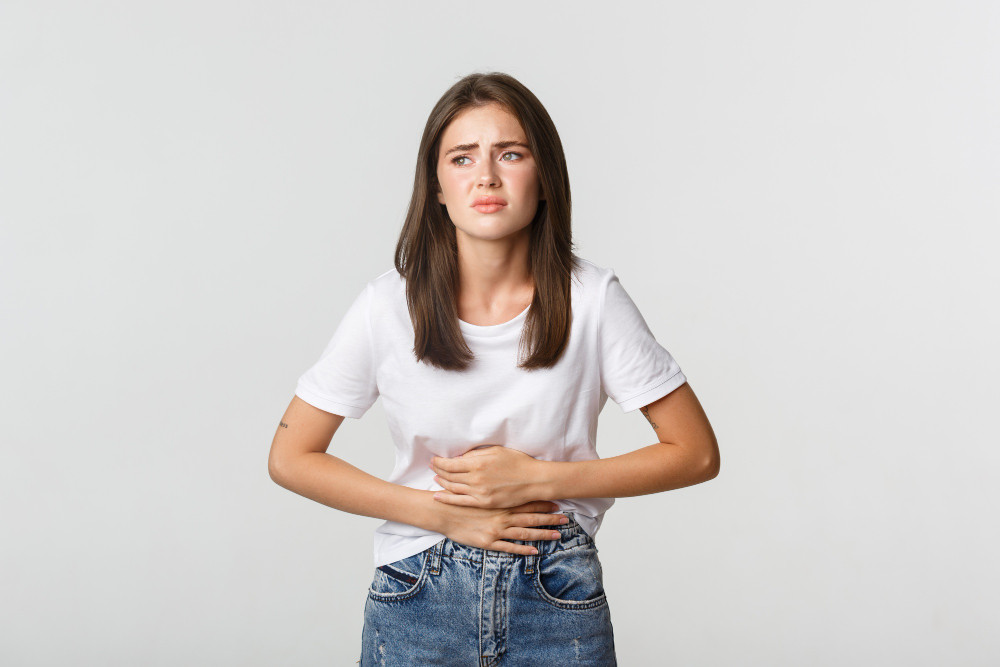Infeksi bakteri Escherichia coli (E. coli) dapat menyebabkan berbagai masalah kesehatan, terutama pada sistem pencernaan. Dampaknya bisa berbeda-beda, tergantung strain (spesies) bakteri yang menginfeksi.
Beberapa strain E. coli seperti E. coli O157 dapat menimbulkan dampak serius seperti nyeri atau kram perut yang parah, diare disertai darah, dan muntah.
Ciri-Ciri Infeksi Bakteri E. coli
Infeksi bakteri E. coli bisa terjadi melalui berbagai hal, seperti konsumsi makanan yang terkontaminasi, air yang tercemar, atau kontak langsung dengan hewan atau manusia yang terinfeksi.
Untuk mencegah dampak yang lebih serius, sangat penting untuk mengenali gejala infeksi E. coli sejak dini agar bisa mendapatkan pengobatan yang tepat. Berikut adalah beberapa tanda-tanda infeksi yang perlu diwaspadai:
Diare
Diare merupakan gejala utama infeksi E. coli. Infeksi bakteri ini seringkali menyebabkan diare mendadak, yang bisa berlangsung antara 5 hingga 10 hari.
Pada beberapa kasus, diare bisa disertai darah, yang menandakan adanya kerusakan pada lapisan dinding usus. Kondisi ini berisiko menyebabkan kehilangan cairan tubuh dalam jumlah besar, yang dapat memicu dehidrasi berat.
Kram perut dan nyeri yang parah
Selain diare, infeksi E. coli juga ditandai dengan kram perut yang sangat intens. Rasa nyeri ini terjadi akibat peradangan di dalam usus.
Kram perut yang dirasakan sangat tajam dan menyakitkan, terutama bila diare sudah mulai berkembang. Gejala ini bisa membuat Anda merasa tidak nyaman dan bahkan sulit melakukan aktivitas sehari-hari.
Baca Juga: Jenis Bakteri yang Paling Sering Menyebabkan Keracunan Makanan
Mual dan muntah
Infeksi E. coli sering kali disertai dengan mual dan muntah, yang sebenarnya merupakan reaksi alami tubuh untuk mengeluarkan bakteri dan racun dari saluran pencernaan. Meskipun ini adalah bagian dari respons tubuh terhadap infeksi, muntah yang terjadi secara terus-menerus dapat mengakibatkan kehilangan cairan tubuh yang signifikan.
Jika tidak segera ditangani, muntah yang terus-menerus dapat memicu kondisi dehidrasi yang bisa menyebabkan ketidakseimbangan elektrolit serta mengganggu fungsi tubuh.
Demam ringan
Infeksi E. coli memiliki ciri khas yang berbeda dibandingkan dengan infeksi bakteri lainnya. Pada beberapa kasus, tubuh mungkin hanya mengalami demam ringan atau bahkan tidak mengalami demam sama sekali.
Tubuh lelah dan lemah
Kehilangan cairan tubuh akibat diare dan muntah terus-menerus dapat menyebabkan rasa lelah dan lemah. Ketika tubuh berusaha melawan infeksi bakteri E. coli, kebutuhan energi akan meningkat.
Jika cairan dan elektrolit tubuh tidak segera dipulihkan, maka tubuh bisa mengalami kekurangan energi, yang membuat penderitanya merasa sangat lelah dan sulit untuk beraktivitas.
Baca Juga: 4 Jenis Bakteri yang Dapat Menyebabkan Penyakit Meningitis
Kapan Harus ke Dokter?
Jika Anda mengalami gejala infeksi E. coli seperti diare berdarah, mual, muntah, atau kelelahan parah, penting untuk segera mencari pertolongan medis. Selain itu, ada beberapa langkah yang bisa dilakukan untuk mengelola gejala sementara sebelum mendapatkan pengobatan:
-
Cukupi Kebutuhan Cairan
Pastikan tubuh mendapatkan cukup cairan dengan mengonsumsi air putih atau larutan elektrolit. -
Hindari Obat Anti-Diare
Jangan mengonsumsi obat anti-diare tanpa anjuran dokter. Obat ini dapat memperlambat proses pengeluaran bakteri dari tubuh, yang justru bisa memperburuk kondisi. -
Konsumsi Makanan yang Mudah Dicerna
Pilih makanan yang ringan dan mudah dicerna, seperti bubur atau roti tawar, untuk mengurangi beban pada sistem pencernaan.
Namun, jika gejala terus berlanjut, atau Anda mengalami tanda-tanda dehidrasi berat, segera kunjungi fasilitas kesehatan terdekat. Anda juga bisa berkonsultasi dengan dokter melalui aplikasi Ai Care yang dapat diunduh di App Store atau Play Store.
Mau tahu informasi seputar penyakit lainya? Cek di sini, yah!
- dr Nadia Opmalina
Cleveland Clinic (2023). E. coli Infection. Available from: https://my.clevelandclinic.org/health/diseases/16638-e-coli-infection
CDC (2024). Kinds of E. coli. Available from: https://www.cdc.gov/ecoli/about/kinds-of-ecoli.html
Mayo Clinic (2022). E. coli. Available from: https://www.mayoclinic.org/diseases-conditions/e-coli/symptoms-causes/syc-20372058
CDC (2024). Symptoms of E. coli Infection. Available from: https://www.cdc.gov/ecoli/signs-symptoms/index.html
Cleveland Clinic (2023). Dehydration. Available from: https://my.clevelandclinic.org/health/diseases/9013-dehydration












